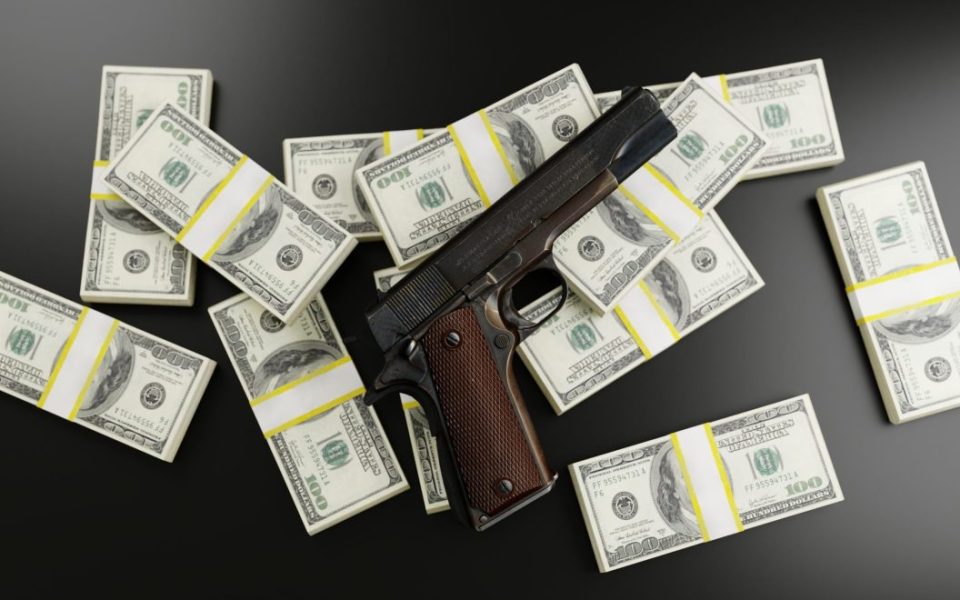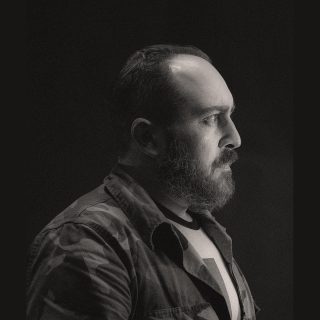On Jan. 15, members of the Winston-Salem Police Department gathered at the Winston-Salem Fairgrounds to hold a gun buyback event in an effort to decrease gun violence in the city. This was the second such event hosted by the city; the first took place in November last year when a total of 367 firearms were purchased from the public. Both events were funded by the Coronavirus Local Fiscal Relief Fund, a part of the $1.9 trillion “American Rescue Plan” that delivered $350 billion to state, local and tribal governments for response and recovery from the COVID-19 pandemic.
The November event cost $50,000, while the most recent event increased the budget to $99,000, which resulted in 516 firearms bought back from the community. The event was held until the cash fund was depleted. To reduce the number of guns in the community, these events are typically held by local law enforcement, using funds allotted to purchase handguns, rifles and shotguns from citizens with the understanding that the transactions are anonymous. This method allows for people with warrants or records to participate without legal reprisals. People are encouraged to bring handguns, rifles and shotguns to sell, and receive cash on-site. With many buyback programs, firearms do not have to be in working condition, and there is no maximum limit on what can be turned in.
One of the main reasons for these events is to curb the issue of rising gun violence within the city. According to CDC data, the United States saw 45,222 gun deaths in 2020, with more than half of those deaths registered as suicides. In Winston-Salem, there were 44 homicides last year, 39 due to gunfire. The total represents a 52 percent increase from 2020, according to data by the WSPD.
WSPD Police Chief Catrina Thompson said in a statement: “Our communities are suffering because of a nationwide increase in violence, especially gun violence. We’re dealing with the COVID-19 pandemic, but we are also dealing with a gun violence epidemic that is shattering families. I am pleading with everyone in our community to take a stand.”
According to a 2018 study by the Small Arms Survey, there are approximately 121 firearms for every 100 citizens in the United States. When it comes to gun ownership in North Carolina, a report by the RAND Corporation from April 2020 estimated that more than 45 percent of adults have guns in their homes.
Kira Boyd, Public Information Officer for the WSPD, said in an interview that the response to the event was “overwhelming.”
“We had quite a variety of firearms turned in, a lot of them usable,” Boyd said.
A press release by the WSPD noted that “out of the 329 handguns, 177 long guns and 10 semi-automatic rifles, two of the guns collected were reported to be stolen.” The firearms are checked against a national database and any reported stolen or used in crimes are held as evidence or efforts are made to return them to the owners that reported them missing. The firearms that were not flagged as evidence in the national database are being held in storage and will be, according to the press release, “properly disposed of in accordance with State Laws.”
Despite a lack of clear evidence that gun buybacks decrease gun violence, these programs have been used for decades.
Do gun buybacks work?
While several studies have been conducted to trace whether or not gun buybacks correlate with decreased gun violence, none have shown a clear connection. A meta-analysis from 2008 in Crime & Delinquency found that there was no “significant changes in gun-related crimes due to these programs.”
A 2013 article by Governing suggests that while raising awareness about gun violence, gun buybacks had little effect in curbing it, with a gun club owner calling it a “publicity stunt” while turning in a nonworking firearm. And that points to a large part of the problem with these events, the research notes. Because the events allow people to turn in any kinds of guns, often the ones that are brought in either no longer work or are not the kind that are used in homicides or suicides.
The WSPD advertised that they would pay $200 for assault rifles, $150 for handguns and $100 for long guns. There were no specifications on whether the guns were still in working order. The Winston-Salem Journal reported that during the first gun buyback in November, many of the firearms that were turned in were rusty, chipped, noticeably antique, nonworking revolvers.
In Winston-Salem, there were 44 homicides last year, 39 due to gunfire. The total represents a 52 percent increase from 2020, according to data by the WSPD.
Evaluations from other municipality’s buyback events provide additional context about the kinds of guns typically turned in. While two-thirds of handguns used in homicides and 40 percent of handguns used in suicides in Milwaukee during 1994-96 were semiautomatics, only one-third of buyback handguns were semiautomatic. Most guns turned in were revolvers.
The demographics of those who participate in buyback programs is also of note. While victims of gun violence are disproportionately Black and Brown, studies such as a 2017 National Institute of Health report show that participants of buyback events tend to be white and male. Because the event was anonymous, WSPD’s Boyd noted that they couldn’t reveal the demographics of the participants.
While tangentially helpful in the fight against gun violence, there’s evidence that when used in tandem with other violence reducing community programs, these events can play a part in the broad fight against gun violence.
One example of a multi-part approach to curbing gun violence took place in Australia. Following a mass shooting in 1996 where 35 people were murdered, Australia’s government reacted with a country-wide gun buyback, enacted new laws restricting the types of firearms legally available and required training and registrations to acquire and possess one. Since 1996, there is evidence that these changes reduced firearm suicides and mass shootings. The new laws also prohibited those with histories of domestic violence from owning a firearm, and a reduction in female homicide victimization has been notably measured.
As noted in a previous TCB article, Cure Violence, an international organization dedicated to stopping gun violence, is partnering with the city of Winston-Salem this year to address the increase in incidents.
Cure Violence’s policy is to talk to people in each individual community they work in to find specific needs, whether it’s housing, jobs, mediation or something else. They work with organizations already in the community like H.O.P.E. Dealers Outreach in Winston-Salem. Frankie Gist founded H.O.P.E. in 2012, after Trayvon Martin’s murder. The organization combats police brutality and gun violence by offering educational programs, back to school drives and hosting protests in Winston-Salem.
“Our communities are suffering because of a nationwide increase in violence, especially gun violence. We’re dealing with the COVID-19 pandemic, but we are also dealing with a gun violence epidemic that is shattering families. I am pleading with everyone in our community to take a stand.” – WSPD Chief Catrina Thompson
This kind of multi-pronged approach in which socio-economic factors like housing and employment are taken into account coupled with the buybacks could be what the city of Winston-Salem needs. In a November 2021 TCB article, Forsyth County Sheriff Bobby Kimbrough noted the complicated process of curbing gun violence.
“[Gun violence] is not a school problem. It’s not a sheriff’s problem. It’s a community problem. It’s a ‘we’ problem,” Kimbrough said. “We’ve got to come together and fix this problem.”
There is currently no information about any upcoming buyback events.
Join the First Amendment Society, a membership that goes directly to funding TCB‘s newsroom.
We believe that reporting can save the world.
The TCB First Amendment Society recognizes the vital role of a free, unfettered press with a bundling of local experiences designed to build community, and unique engagements with our newsroom that will help you understand, and shape, local journalism’s critical role in uplifting the people in our cities.
All revenue goes directly into the newsroom as reporters’ salaries and freelance commissions.


[…] and hope.”A similar tactic that has become popular when it comes to combating gun violence is the model of gun buybacks, in which cities host events where people can turn in guns for cash or gift cards. In January, the […]